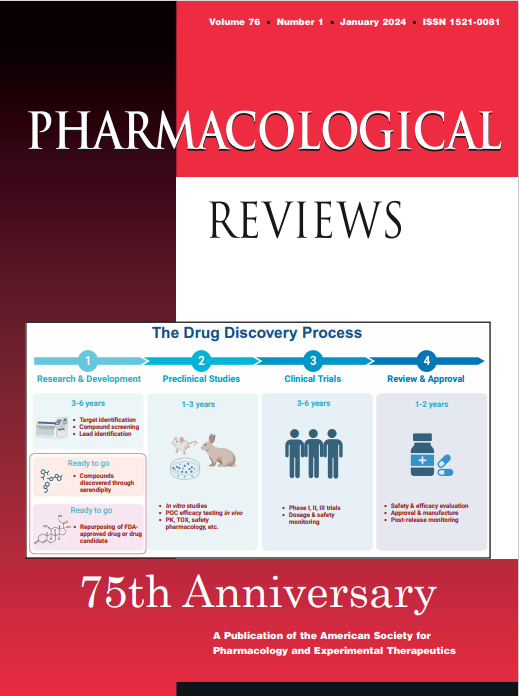Emerging Pharmacotherapies for Obesity: A Systematic Review.
IF 17.3
1区 医学
Q1 PHARMACOLOGY & PHARMACY
引用次数: 0
Abstract
The history of anti-obesity pharmacotherapies is marked by disappointments, often entangled with societal pressure promoting weight loss and the conviction that excess body weight signifies a lack of willpower. However, categories of emerging pharmacotherapies generate hope to reduce obesity rates. This systematic review of phase 2 and phase 3 trials in adults with overweight/obesity investigates the effect of novel weight loss pharmacotherapies, compared to placebo/control or Food and Drug Administration-approved weight loss medication, through searching Medline, Embase, and ClinicalTrials.gov (2012-2024). We identified 53 phase 3 and phase 2 trials, with 36 emerging anti-obesity drugs or combinations thereof and four withdrawn or terminated trials. Oral semaglutide 50 mg is the only medication that has completed a phase 3 trial. There are 14 ongoing phase 3 trials on glucagon-like peptide-1 (GLP-1) receptor agonists (RAs) (ecnoglutide, orforglipron, TG103), GLP-1 RA/amylin agonist (CagriSema), GLP-1/glucagon RAs (mazdutide, survodutide), GLP-1/glucose-dependent insulinotropic polypeptide and glucagon RA (retatrutide), dapagliflozin, and the combination sibutramine/topiramate. Completed phase 2 trials on incretin-based therapies showed a mean percent weight loss of 7.4-24.2%. Almost half of the drugs undergoing phase 2 trials were incretin analogs. The obesity drug pipeline is expanding rapidly, with the most promising results reported with incretin analogs. Data on mortality and obesity-related complications, such as cardio-renal-metabolic events, are needed. Moreover, long-term follow-up data on the safety and efficacy of weight maintenance with novel obesity pharmacotherapies, along with studies focused on under-represented populations, cost-effectiveness assessments, and drug availability, are needed to bridge the care gap for patients with obesity. Significance Statement Obesity is the epidemic of the 21st century. Except for the newer injectable medications, drugs with suboptimal efficacy have been available in the clinician's armamentarium. However, emerging alternatives of novel agents and combinations populate the obesity therapeutic pipeline. This systematic review identifies the state and mechanism of action of emerging pharmacotherapies undergoing or having completed phase 2 and phase 3 clinical trials. The information provided herein furthers the understanding of obesity management, implying direct clinical implications and stimulating research initiatives.治疗肥胖症的新兴药物疗法:系统回顾。
抗肥胖药物疗法的发展史充满了失望,这往往与提倡减肥的社会压力以及认为体重过重意味着缺乏意志力的信念纠缠在一起。然而,各类新兴的药物疗法为降低肥胖率带来了希望。本研究通过检索 Medline、Embase 和 ClinicalTrials.gov(2012-2024 年),对成人超重/肥胖症患者的 2 期和 3 期试验进行了系统回顾,研究了新型减肥药物疗法与安慰剂/对照药或美国食品药品管理局批准的减肥药物相比的效果。我们确定了 53 项 3 期和 2 期试验,其中包括 36 种新出现的抗肥胖药物或其组合,以及 4 项已撤销或终止的试验。口服塞马鲁肽 50 毫克是唯一完成 3 期试验的药物。目前有 14 项关于胰高血糖素样肽-1(GLP-1)受体激动剂(RAs)(ecnoglutide、orforglipron、TG103)、GLP-1 RA/amylin 激动剂(CagriSema)的 3 期试验正在进行中、GLP-1/胰高血糖素 RA(mazdutide、survodutide)、GLP-1/葡萄糖依赖性促胰岛素多肽和胰高血糖素 RA(retatrutide)、达帕格列净(dapagliflozin)以及西布曲明/托吡酯组合。已完成的增量素疗法 2 期试验显示,体重减轻的平均百分比为 7.4%-24.2%。正在进行第二阶段试验的药物中,近一半是胰岛素类似物。肥胖症药物的研究范围正在迅速扩大,其中以胰岛素类似物的研究结果最有希望。目前还需要有关死亡率和肥胖相关并发症(如心肾代谢事件)的数据。此外,还需要有关新型肥胖症药物疗法维持体重的安全性和有效性的长期随访数据,以及针对代表性不足人群、成本效益评估和药物供应情况的研究,以弥补肥胖症患者的治疗缺口。意义声明 肥胖是 21 世纪的流行病。除了较新的注射药物外,临床医生一直在使用疗效不佳的药物。然而,在肥胖症治疗领域,新出现的替代药物和组合药物层出不穷。本系统性综述确定了正在进行或已完成 2 期和 3 期临床试验的新兴药物疗法的状态和作用机制。本文提供的信息有助于加深对肥胖症治疗的理解,具有直接的临床意义,并能促进研究工作的开展。
本文章由计算机程序翻译,如有差异,请以英文原文为准。
求助全文
约1分钟内获得全文
求助全文
来源期刊

Pharmacological Reviews
医学-药学
CiteScore
34.70
自引率
0.50%
发文量
40
期刊介绍:
Pharmacological Reviews is a highly popular and well-received journal that has a long and rich history of success. It was first published in 1949 and is currently published bimonthly online by the American Society for Pharmacology and Experimental Therapeutics. The journal is indexed or abstracted by various databases, including Biological Abstracts, BIOSIS Previews Database, Biosciences Information Service, Current Contents/Life Sciences, EMBASE/Excerpta Medica, Index Medicus, Index to Scientific Reviews, Medical Documentation Service, Reference Update, Research Alerts, Science Citation Index, and SciSearch. Pharmacological Reviews offers comprehensive reviews of new pharmacological fields and is able to stay up-to-date with published content. Overall, it is highly regarded by scholars.
 求助内容:
求助内容: 应助结果提醒方式:
应助结果提醒方式:


